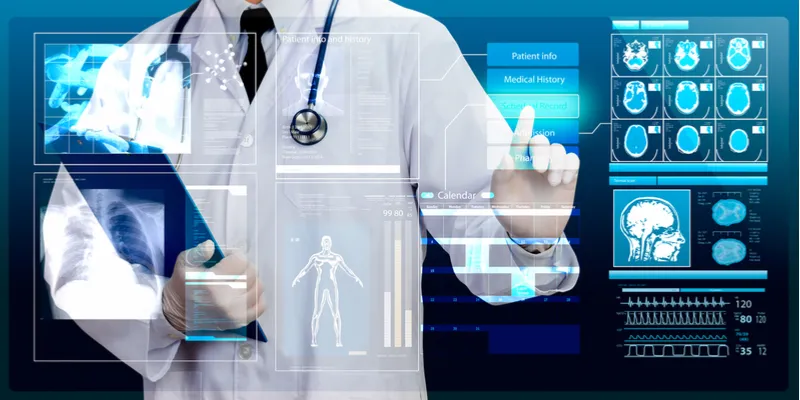Smarter healthcare: AI, machine learning, and wearables will pave the path ahead
The time and context are ripe for an alignment towards technology for the healthcare sector.

Nearly 61 percent deaths in India are due to lifestyle diseases, according to a 2017 CSE report. Obesity, diabetes, hypertension, cardiac problems, renal issues, and other problems are a part of every family’s life. Imagine if the aforementioned death rate steadily doubles in the next 5 years? Timely medication, proper diagnosis, adherence, and prevention of complications are a must. The fact that there is a high probability of up to 25 percent medicines in India being fake (as per an ASSOCHAM study), certainly does not help. Needless to say, these scenarios are starting to exert immeasurable pressure on the economy’s productivity pool and healthcare budget.
For the healthcare sector, the time and context are ripe for a paradigm alignment towards technology. To start, let’s look at the technology sensation that’s ruling the world today - artificial intelligence (AI) and the associated use of machine learning (ML).
Ongoing experience suggests that AI can boost the healthcare sector multifold. Here’s how: with AI working in the back end, an entire supply chain of medicine can be integrated. From manufacturers to consumers located in the country’s distant belts, the entire procurement and supply can be centrally controlled and monitored with ease. This will be highly effective in ensuring supply and reach of genuine, unadulterated medicine.
AI-driven apps are potent enough to replace physical visits to chemist shops altogether. By keeping tab on an individual’s health condition each time s/he orders medicine online, AI makes healthcare personalised, accessible and affordable! These personalised apps open avenues to myriad health tools like reminders for medicine intake, auto-filing, and search for medicines and allied products. ResearchKit from Apple, a case in point, is working towards finding cures to Parkinson’s disease and Asperger’s syndrome by tracking user activity on interactive apps.
The domain of diagnostics is another field that can benefit from the use of AI, especially under the aegis of ML. By empowering machineries to learn and apply logic, doctors and clinicians are facilitating faster and more accurate diagnosis. In 2016, IBM’s Watson computer readily diagnosed a perplexing condition affecting a Japanese patient with leukaemia. Smart use of ML and data mining from 20 million oncology records did the trick!
AI-driven platforms can also be used to create a nexus between patients and doctors, home care service providers, and diagnostic services - at one place. No hassles of data storage and mapping of fulfilments to requirements. ML algorithms play an uber-important role here by clustering symptoms among patients and rolling out the probabilities of contacting particular diseases. Being alerted in advance, the patients would save a lot of unnecessary expenditure as well.
Everyone knows that most lifestyle diseases can be managed or even reversed with basic dietary modifications. To this end, the gap between medication and health counselling needs to be bridged, and AI fits this bill as well! AI-driven diet clinics can churn out diet plans, personalised to the demographic and medical details of an individual, within seconds.
The interplay of technology and healthcare had made popular many wearable devices; based on this, the traditional doctor-patient interface is undergoing massive turns. Let’s first look at this from the standpoint of the patients: worn as non-interfering accessories or implants, these health-assessing devices have spun a new medical discipline into being – telehealth. Smartwatches, activity trackers, and fitness bands are cases in point. These facilitate the seamless and real-time collection of medical-grade health data like heart rate, pulse, blood pressure, and sleep, both for doctors’ use and personal fitness goals. Zephyr’s Anywhere BioPatch is a good example. Some therapeutic devices are structured to manage pain and provide first aid relief like insulin or air pump.
From the doctors’ vantage point, surgeons worldwide are quickly getting accustomed to the use of Google Glass, a wearable device that helps doctors to access and assess health records of relevant patients in the emergency room.
But despite the changes, a general sense of dissent stills grips the tech-averse Indian consumer of healthcare. The wave of technology can be overwhelming for patients, far more used to the traditional modes of operation. There are in fact two sides to the argument: while technology processes fast and leaves minimal room for error, loopholes like hackers breaches of patient data do loom at large! This is where local trust and personal touch come into play; if people do not advance towards technology, technology must be taken to them.
It is important to reach out to people before lifestyle diseases reach them. The smart use of smart technology will not only provide counselling for those in need (people facing high risk) and help in preventing lifestyle diseases, it has the potential to revamp the entire spine of the healthcare system.
(Disclaimer: The views and opinions expressed in this article are those of the author and do not necessarily reflect the views of YourStory.)







